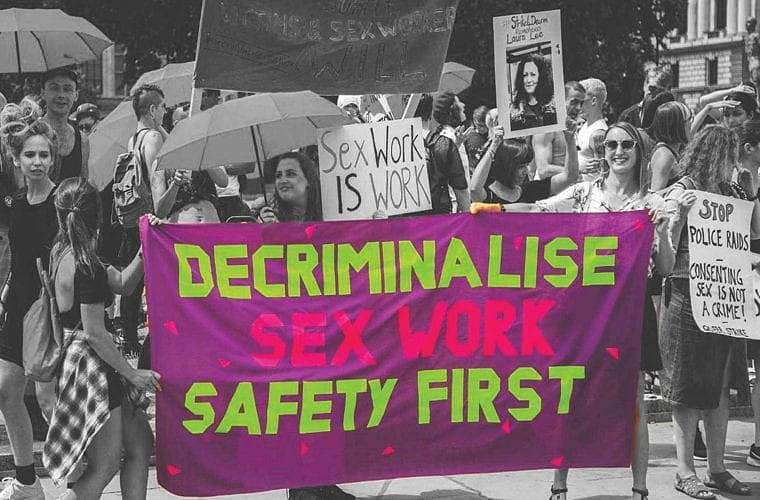March 22, 2023
DSW Staff Attorney Rebecca Cleary traveled to Rhode Island to testify in support of three important bills making their way through the Rhode Island legislature. DSW is working towards the ultimate goal of the decriminalization of consensual adult sex work and advocating for incremental measures that states can take to reduce exploitation and violence perpetrated against sex workers and survivors of trafficking. If passed, these bills introduced in RI would bring immediate health and safety benefits to individuals engaged in sex work. Rebecca was joined by Tricia Newalu, founder of the Erotic Laborers’ Association of New England (ELA-ONE), who testified that since an immunity law was enacted in her home state of New Hampshire, sex workers have been able to share critical information about violent individuals with law enforcement.
H6140, currently being reviewed by the House Judiciary Committee, grants immunity from prosecution for commercial sexual activity to any victim or witness of a crime if they report the offense to law enforcement, seek or receive health care services as a result of their involvement or witnessing the offense, or assist or attempt to assist in the investigation and prosecution of the offense. Importantly, this protection is honored even if they later withdraw their cooperation. S402 is currently being reviewed by the Senate Judiciary Committee and would offer similar vital protections around immunity as the House bill.
People involved in the sex trade, whether by choice or by force, fraud, or coercion, often are victims of violent crime and exploitation, but frequently don’t report crimes perpetrated against them due to fear of arrest. When abusers are not reported to law enforcement, they are able to continue acts of violence and exploitation with impunity. Immunity allows sex workers and trafficked people to safely report crimes and seek medical care without the fear that they themselves will be criminalized. They equip law-enforcement entities with an increased ability to identify, investigate, and convict perpetrators of violence and trafficking. Immunity laws directly protect victims and witnesses of violence and they ultimately benefit all communities by allowing law enforcement to better detect criminal activity.
Read more about the importance of immunity laws, also referred to as Good Samaritan Laws, and states that have enacted them here.
S0372, in front of the Senate Judiciary committee, establishes criteria for the criminal offense of sexual assault when the victim is in the custody of a peace officer. It provides that a person convicted of custodial sexual assault would face imprisonment for not more than 3 years. Forty states have laws making sexual interaction between a law-enforcement agent and a person in their custody illegal.
As Clearly wrote:
While I am writing as an advocate for sex workers, this is an issue that affects a much wider swath of community members. Police sexual violence is the second-most prevalent form of police violence behind excessive force, but because victims are often hesitant to report their experience, there are likely exponentially more cases than have been documented. Sexual assault is, of course, already illegal; however, victims are understandably reluctant to report an assault to the same law enforcement entity that caused their victimization. They may fear that they will face retaliation, that they won’t be believed, or that the offender will claim the encounter was consensual. A law explicitly prohibiting sexual assault of someone in law enforcement custody is necessary to ensure these crimes don’t go unreported.
Custodial sexual assault can affect anyone who comes into contact with law enforcement, but sex workers and trafficking survivors are especially vulnerable to police sexual violence. The International Association of Chiefs of Police’s Addressing Sexual Offenses and Misconduct by Law Enforcement Executive Guide even acknowledges that “predators select victims based on vulnerabilities and a perceived lack of credibility, and therefore, victimization is often higher among certain populations including … individuals in prostitution and/or the commercial sex industry.” Offenders take advantage of the stigma surrounding sex work and can exploit their authority to coerce victims into unwanted sexual contact by threatening arrest.
Read DSW’s publication on Police Sexual Violence Laws here.
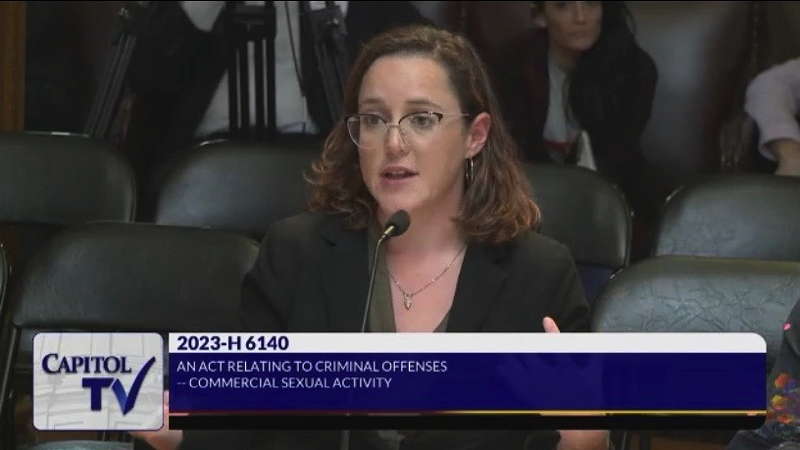
Staff Attorney Rebecca Cleary testifying before the Rhode Island Senate Judiciary Committee.
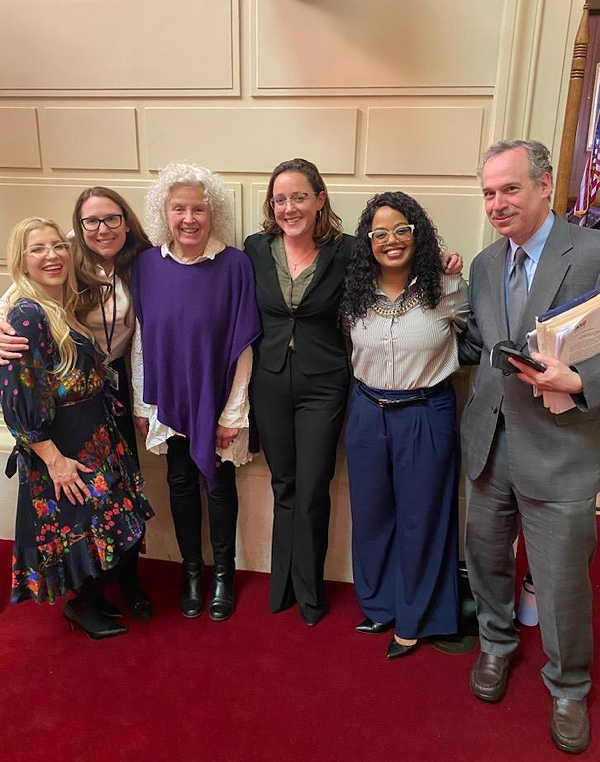
Tricia Newalu and Rebecca Cleary pose with RI House representatives following the House Judiciary Committee hearing.
DSW Newsletter #46 (March 2023)
Decriminalization Advocates Fill the NY State Capitol
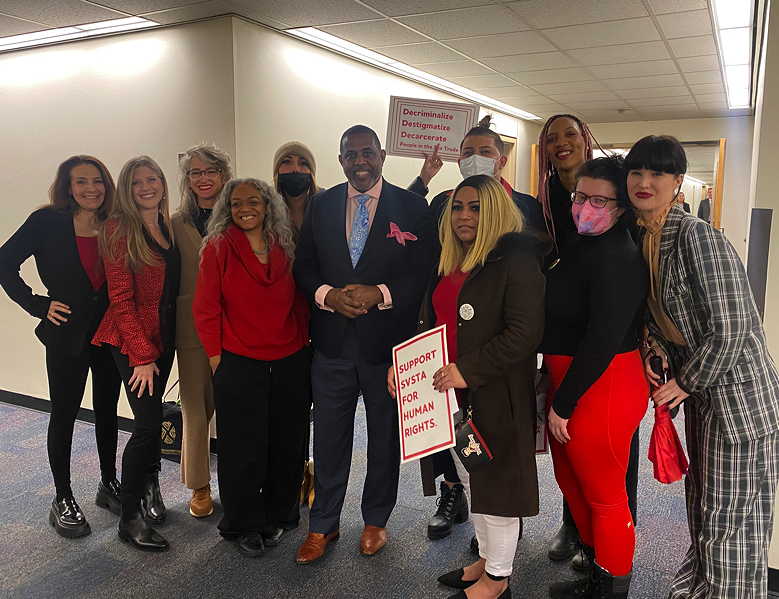
DSW Testified on Important Sex Work Related Bills in RI

VT Senate and House Introduce Decriminalization Bills
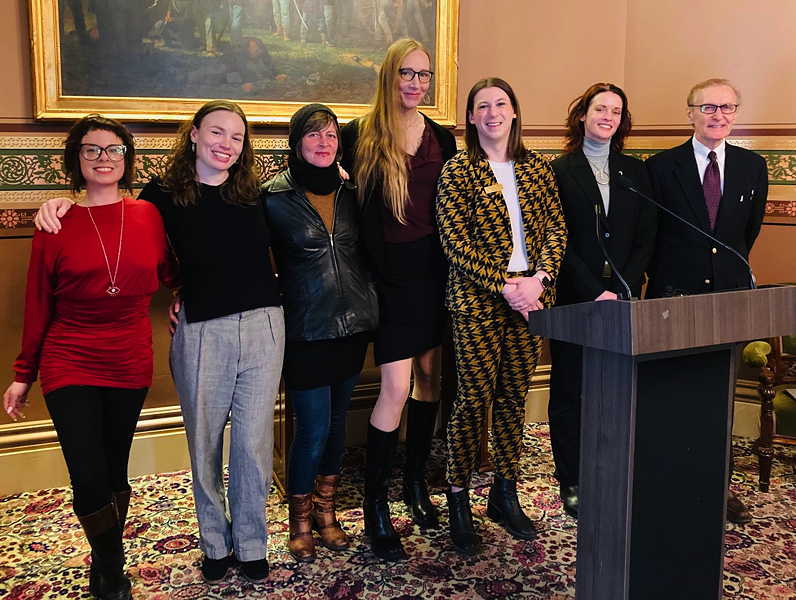
Making Sex Work an Honest Business Makes Communities Safer | New York Law Journal
